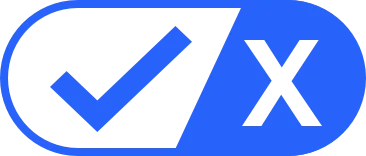The choice to rent or buy your home is a major decision, and it’s one that shouldn’t be taken lightly. In a competitive housing market, it can be tough to see yourself as a homeowner versus a renter, but that shouldn’t deter your goal of homeownership.
The rent you pay your landlord – which goes to pay his or her mortgage – could easily be used to build equity in a home of your own. And there are more options than ever for getting approved for a home mortgage loan. From FHA to VA loans, and even USDA loans, Mutual of Omaha Mortgage can help you answer the questions you need to ask to know if you’re ready to turn your rent into a home mortgage payment.
Are You Stuck in a Renter’s Rut?
Rent payments secure you shelter, but not always much more. Renters usually pay most, if not all, utilities (including water), extricity, cable and internet. In some cases, renters are even paying premium rental prices for amenities like pools, hot tubs, gym access and conference rooms, even if they’re not always available to all residents. Plus, there can be extra fees included that help your landlord cover rental management and general maintenance. Welcome to the renter’s rut?
However, when you own the place where you live, that home builds equity every time you make a mortgage payment. So, you’re continuously adding value. Your payments are likely to stay stable if you have a fixed-rate mortgage so you also never need to worry about your landlord raising the rent unexpectedly. In fact, you may even be able to lower your mortgage payment with a refinance to a lower rate or a shorter term.
Lastly, equity built allows you to gain the flexibility to tap into your home’s value should you need an influx of cash. Some common reasons you might do a cash-out refinance include paying for college, consolidating debt or even paying for home improvements like that private pool you always wanted or maybe that custome home gym.
How a Home Helps You Build Wealth
Along with building equity, most homes increase in value over time. In fact, data firm Black Knight reports that yearly home price growth has seen a 25-year average return of 3.9%. Your home can also appreciate (build value) as you make updates and renovations.
This can also be especially useful if you plan to stay in your home for a long period of time because your home is a growing asset that can help build cash liquidity when you’re older. Many retirees look forward to the day they no longer have a home mortgage payment and live totally rent free in their home. Some older homeowners even tap their home’s equity through a reverse mortgage loan that allows homeowners 65 years and older to receive cash payments or a lump sum payment to help fund their retirement.
If you aren’t sure how long you’ll stay in your home, or you know you might be moving soon, homeownership can still help build equity and save faster for your long-term home. Many first-time homeowners know they are buying what’s commonly called a starter-home – a smaller property, sometimes a condo or townhome, they know they can afford now knowing they can sell at a profit for a home that fits their changing needs. When you sell your home, you will likely have significant equity which can be put toward the down payment of a new home.
In addition to equity earned, you can also use the creditworthiness built by making regular home mortgage payments and the equity saved to reinvest in an investment property. If you have the financial means, you can keep your starter home and rent it as an additional income source. Or, you can stay in your current home and invest in a fixer-upper to flip if you’re savvy with home improvement projects. Some entrepreneurial homeowners have also turned their properties into short-term rentals to earn a profit.
Additional Benefits of Owning a Home
Once you escape the renter’s rut, you’ll discover a wide range of benefits to owning a home. Such as: increased net worth, greater stability, stronger ties to the community, increased privacy, potentially reduced tax burden, and pride of ownership. Ask any homeowner, the
pride and joy of knowing the house you live in is the home you created is priceless, now matter how much you might have paid for your home.
If you’re thinking about buying a home, we can help. Call or email a Mutual of Omaha mortgage loan officer today. [contact name, phone number, email, etc.]
If You Can’t Put 20% Down, Don’t Freak!
You’re not required to have a 20% down payment to purchase a new home. There are plenty of home loan programs with $0 down or low down payment options.
Generally, the more you put down on your new home purchase, the lower your interest rate and monthly payment will be. But it doesn’t mean that you don’t have options and that you shouldn’t talk to a mortgage lender about getting pre-qualified.




